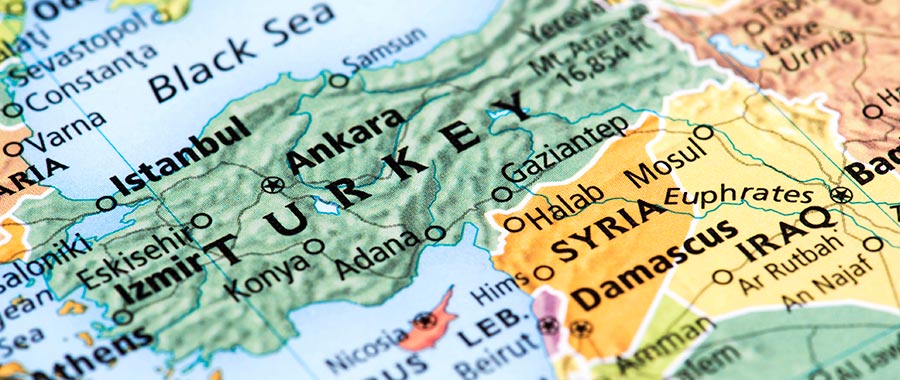Bahá’u’lláh, the founder of the Bahá’í Faith, is considered one of the most significant religious figures of the 19th century. His life was marked by a series of exiles and imprisonments, which were not merely punitive but served as pivotal moments in the unfolding of his mission. His third exile, toward the end of his life, symbolizes a crucial phase in the dissemination of his teachings and the fortification of the Bahá’í community.
In the context of Bahá’í teachings, this third exile can be understood both as a historical event and as a transformative period that further crystallized Bahá’u’lláh’s divine message. The journey beginning from Baghdad to Edirne, and ultimately to Akká, is not simply an account of geographical displacement; it encapsulates profound spiritual implications and emblematic lessons.
Throughout his teachings, Bahá’u’lláh emphasized the significance of enduring trials, suggesting that each affliction serves to elevate the human spirit. His exiles were marked by significant events and interactions that enriched his teachings, facilitated the formation of a nascent community, and ultimately contributed to the propagation of the Faith.
The Historical Context of the Third Exile
Understanding Bahá’u’lláh’s third exile necessitates a brief overview of the political and social environment of 19th-century Persia (modern-day Iran). The societal turbulence and religious fervor of the time culminated in the rise of the Bábí movement, which emphasized radical spiritual and social reform. As a leading figure in this movement, Bahá’u’lláh quickly became a target for governmental persecution.
His geopolitical journey from Persia to the Ottoman Empire is illustrative of the broader conflicts between traditional religious authority and emerging reformist ideologies. The journey culminated in his arrest in 1868 and subsequent exile to the prison city of Akká, where he would spend a significant part of his life. This phase marks a turning point where his revelations intensified, providing deeper insights into the nature of God, humanity, and the intricate connections binding them.
The Spiritual Significance of the Exile
Bahá’u’lláh articulated that exile served more than just a physical displacement; it represented a spiritual crucible. The hardships inherent in his captivity were transmuted into powerful revelations, replete with profound theological significance. His writings during this period—particularly in “The Book of Certitude” and “The Hidden Words”—elucidate the concept of the oneness of humanity. These texts emphasize the necessity of unity and cooperation among diverse peoples, transcending the barriers erected by religion, nationality, and caste.
Furthermore, the third exile served to crystallize his role as a divine educator. Bahá’u’lláh articulated the notion that the pains endured for a sacred cause refine one’s character and illuminate the path toward spiritual awakening. This theme resonates throughout his teachings, fostering resilience among his followers. The idea that challenges can forge a more profound connection to the divine permeates Bahá’í thought and encourages adherents to view trials as opportunities for growth.
Formation of the Bahá’í Community
While in exile, Bahá’u’lláh attracted a diverse following, which would become the bedrock of the Bahá’í community. This period saw the establishment of institutions meant to promote unity, consultation, and collective decision-making. The enactment of these principles was paramount, as they laid the foundations for what would become the administrative order of the Bahá’í Faith. The establishment of local and national assemblies ratified the significance of communal governance, promoting inclusivity and collaborative action.
Additionally, Bahá’u’lláh’s teachings during this exile emphasized education, particularly in a global context. He heralded education as a critical instrument for social advancement, positing that knowledge is a collective heritage essential for every human being. This ideal remains central to Bahá’í practice, as it aspires to eradicate ignorance and foster enlightened societies.
Universal Peace and Global Consciousness
As Bahá’u’lláh continued to espouse His message of peace during his third exile, His teachings became increasingly relevant in an age marked by conflict and division. Central to his philosophy is the principle of universal peace, where individual responsibility converges with collective welfare. The teachings articulate a vision of a global society rooted in justice, equity, and interdependence—one that transcends parochial considerations to embrace the global family.
Bahá’u’lláh enunciated that the establishment of peace is not a utopian dream but a tangible goal achievable through understanding and mutual cooperation. His exhortations remain pertinent today, inspiring initiatives aimed at fostering dialogue among nations and cultures. This focus on peace and reconciliation reflects the essence of his divine mission, urging humanity toward a harmonious existence.
Perseverance and the Adversity of Belief
Bahá’u’lláh’s experiences during his third exile elucidate a broader theme present throughout his teachings: the empowerment of belief amidst adversity. The trials faced by Bahá’ís have often been spectrums of persecution; however, the lessons derived from these experiences highlight the necessity of steadfastness. The notion of resilience in faith, drawing strength from community and belief, has sustained followers through numerous challenges. This unwavering commitment to the teachings serves as an exemplar for adherents, guiding them to persist in their spiritual journeys.
Conclusion
Bahá’u’lláh’s third exile stands as a profound testament to the transformative power of adversity in the divine mission. This period not only reshaped Bahá’í teachings but also fostered an enduring sense of community, emphasizing the themes of unity, education, and peace. Readers engaging with the legacy of Bahá’u’lláh will find an intricate tapestry of teachings that invite reflection on the deeper implications of personal and collective trials. This journey continues to resonate, guiding the Bahá’í community toward a future grounded in hope, resilience, and the steadfast pursuit of justice.
